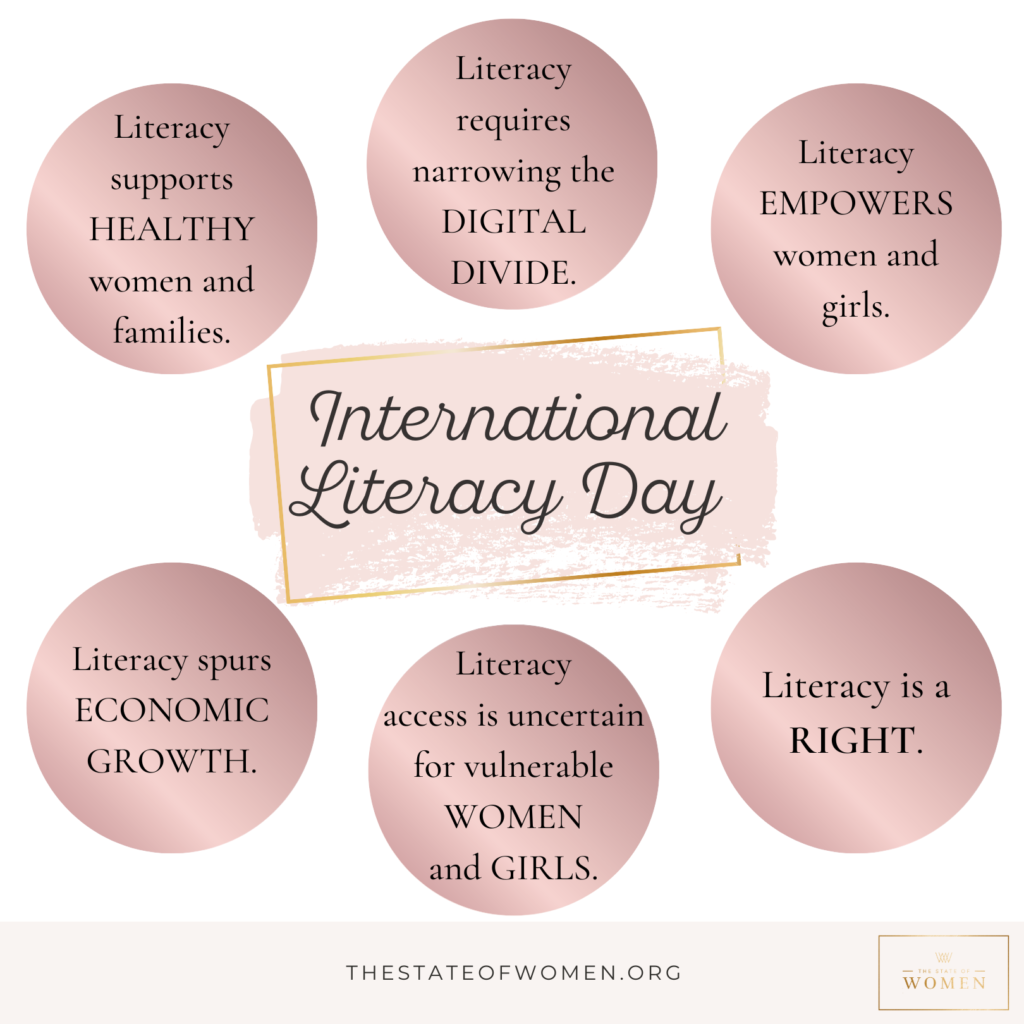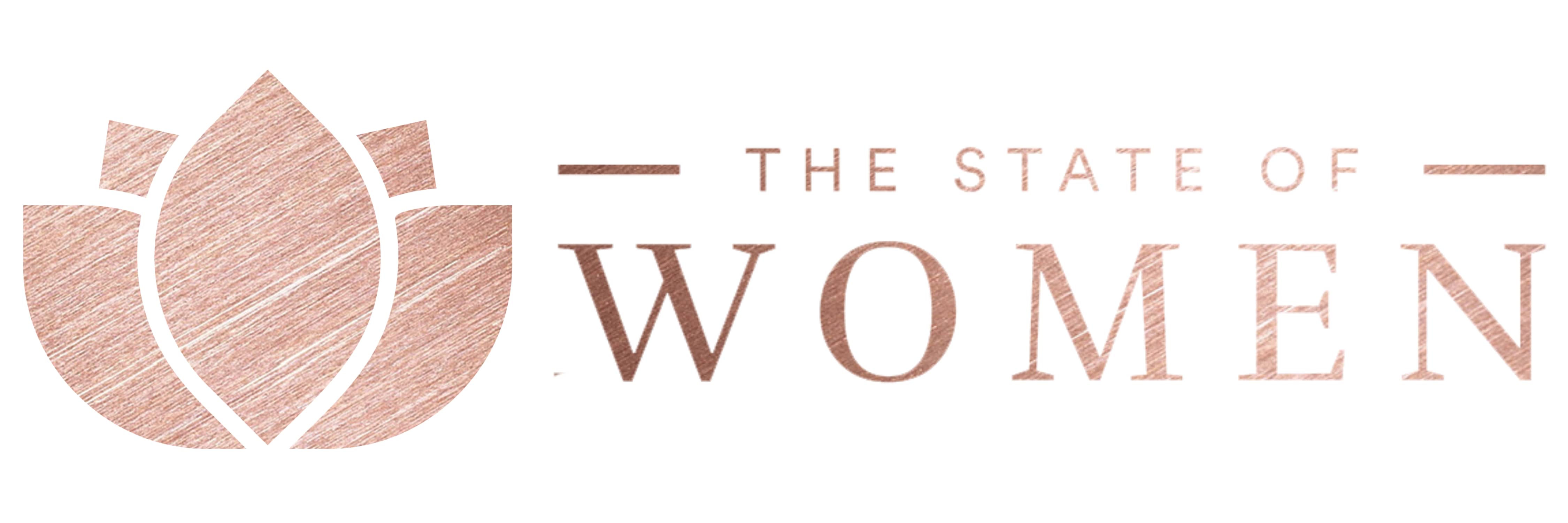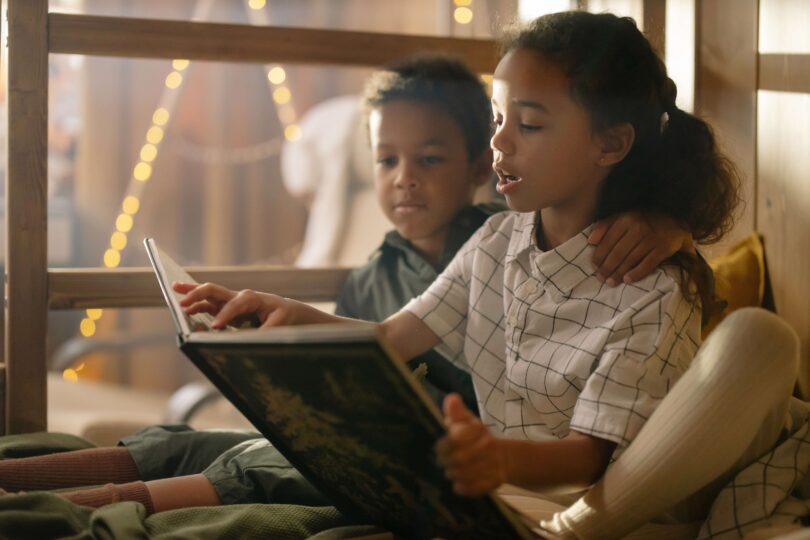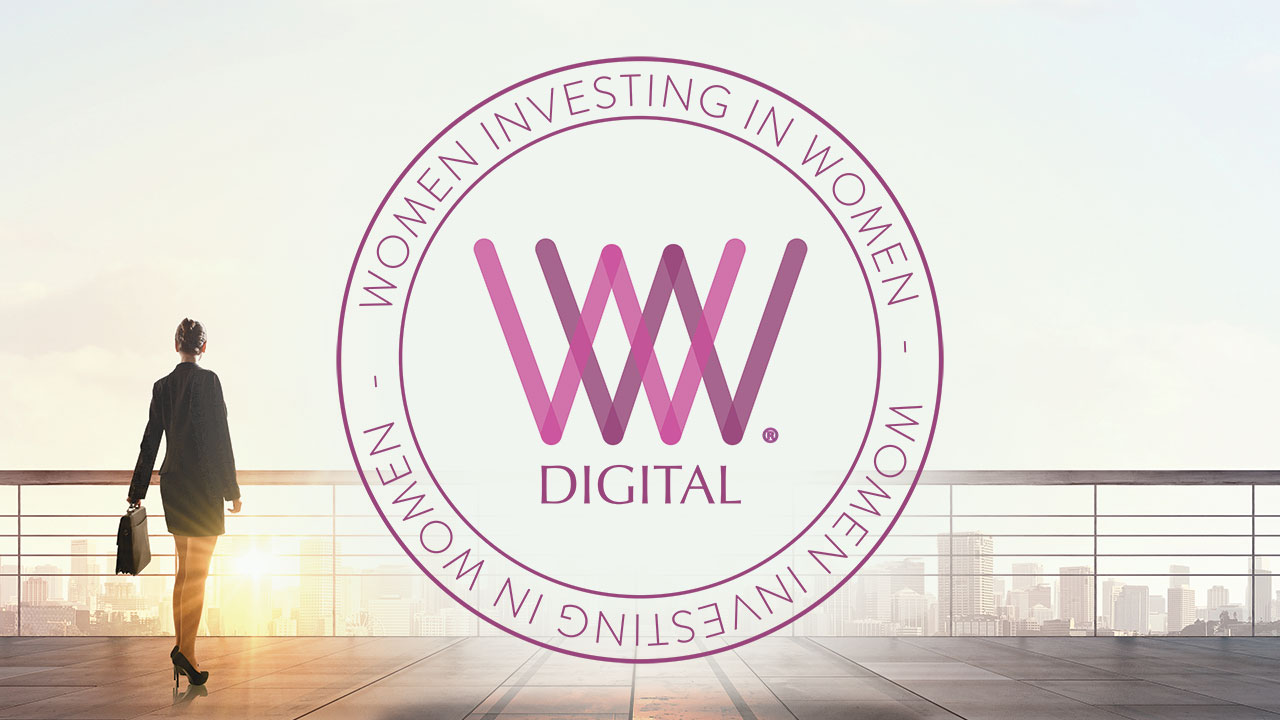Heightened and worsening oppression in Afghanistan, refugees with limited access to education, ongoing inequalities, and disruptions to education during the COVID-19 pandemic have made promoting literacy more challenging—and crucial—than ever. Sept. 8, International Literacy Day, we’re looking at how literacy especially impacts women and girls—and what we can do.
In a statement for the day, UNESCO noted that the pandemic had “magnified the pre-existing inequalities.” The organization also pointed out the central role of literacy in reaching Sustainable Development Goals and building a better future, calling the pandemic a “reminder of the critical importance of literacy. Beyond its intrinsic importance as part of the right to education, literacy empowers individuals and improves their lives by expanding their capabilities to choose a kind of life they can value. It is also a driver for sustainable development.”
SDG 4, quality education for all, is central to the discussion, but literacy is also tied to women’s rights and agency: Of the 773 million adults worldwide who are not literate, two-thirds are women. With almost half the world still lacking internet access and up to 70% of women and girls lacking mobile devices or digital access, literacy is a gendered issue. Opportunities are needed now more than ever to help those who can help themselves—and also uplift their families and communities.
This year’s theme, “Literacy for a human-centered recovery: Narrowing the digital divide,” highlights the disparities in literacy access in a connected world that have become even more apparent with shifts to distance learning and work, and how addressing the inequalities can help everyone access the power that comes with literacy and access to information.
Advocates for literacy around the world are urging infrastructure changes to provide dependable electricity and internet access to all communities and individuals, as well as efforts to teach the technology skills needed to navigate a connected world. As former Secretary-General of the United Nations Kofi Annan noted, “For everyone, everywhere, literacy is, along with education in general, a basic human right.”

How you can help:
DONATE: If you can, consider giving to an organization like Room to Read, focusing on literacy and girls’ education around the globe, or ProLiteracy Worldwide. You can also use Guidestar.org or CharityNavigator.org to search for literacy efforts in your area.
GIVE: Consider giving books to your local library or to local school classrooms, especially elementary classes.
VOLUNTEER: Lend your time and knowledge to help tutor others-share the power of reading and writing.
LEARN and ACT: Learn all you can about literacy rates in your area and around the world, and use what you know to campaign for literacy in your community and around the world. UNESCO, the organizations in this post, and your local library or school are all excellent resources to find out more.
This International Literacy Day and beyond, we’re standing for the rights of everyone around the world to connect—through the internet, and with the far-reaching and inclusive power of communication and education.



